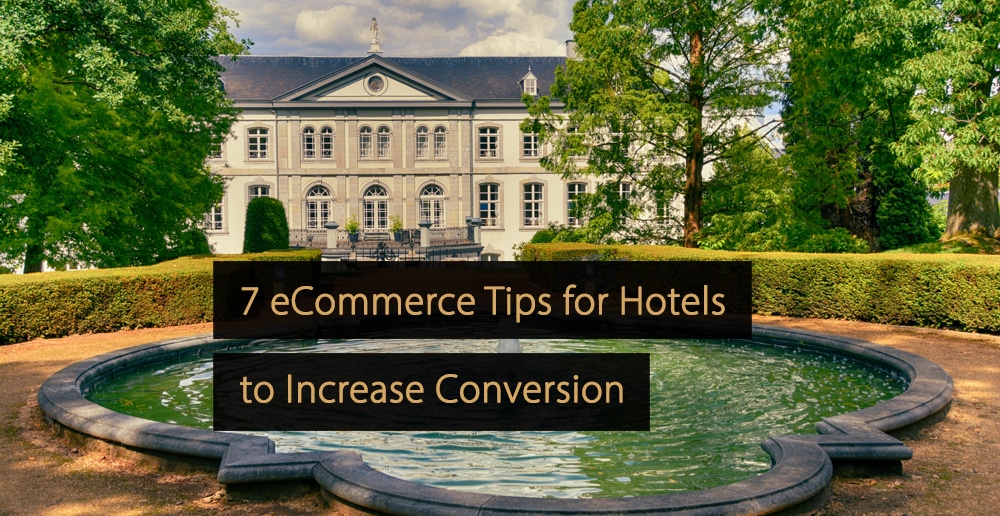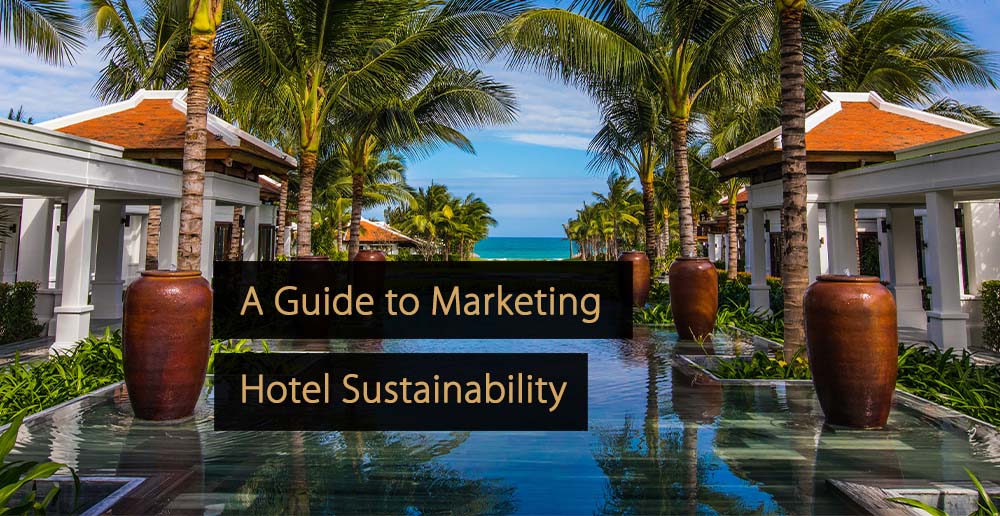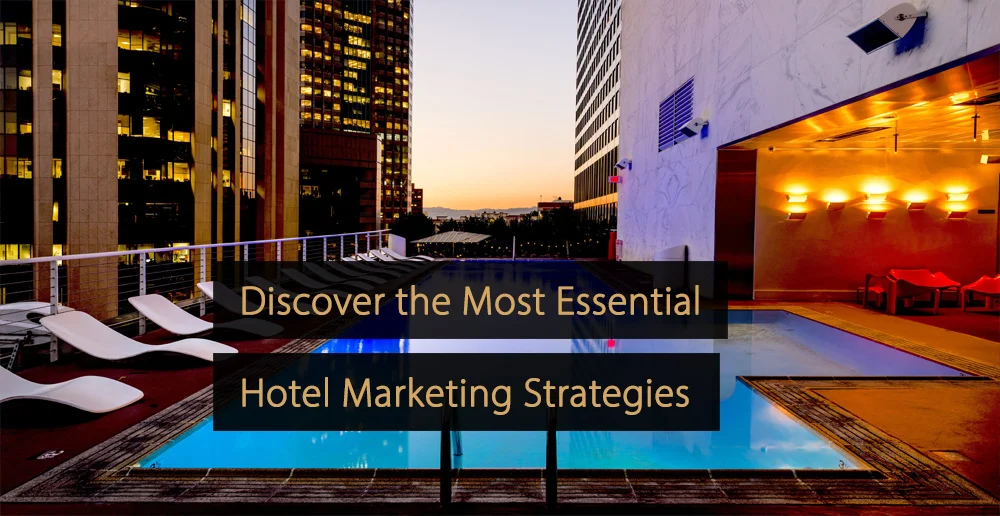La présence en ligne de votre hôtel est plus importante que jamais, et cela ne signifie pas seulement avoir un site Web. Il inclut également votre configuration de commerce électronique.
Votre site Web est souvent le premier point de contact que tout client intéressé consulterait pour en savoir plus sur votre hôtel. Quels que soient vos visiteurs en ligne, quand ou qui, vous devez vous assurer que votre site Web fonctionne constamment de manière optimale et considérer votre objectif ultime : transformer les navigateurs en ligne en clients actifs. En améliorant votre présence dans le commerce électronique, vous pouvez vous rapprocher de cet objectif.
Qu’est-ce que le commerce électronique ?
Il peut sembler futile de mentionner la définition du commerce électronique ; après tout, c’est un terme qui revient si souvent. Le commerce électronique est défini comme "L'utilisation d'Internet pour acheter et vendre des biens et des services." De nombreux hôtels ont la possibilité d'effectuer des réservations directes qui sont réservées et payées sur leur site, ce qui en fait une plateforme de commerce électronique. Cependant, de nombreux hôtels ne considèrent pas leurs sites Web et leurs moteurs de réservation comme des sites de commerce électronique.
7 conseils de commerce électronique pour les hôtels pour augmenter la conversion
Vous trouverez ci-dessous 7 façons dont votre hôtel peut améliorer sa présence dans le commerce électronique et augmenter la conversion, ce qui entraînera des revenus plus élevés.
1. Utilisez des images et des copies de haute qualité
Cela va sans dire. Vous devez avoir des images fantastiques et une excellente rédaction sur le site de commerce électronique de votre hôtel.
À l’ère numérique actuelle, une grande partie du contenu consommé passe par une forme de plate-forme visuelle. Qu'un invité potentiel voie vos images directement sur la galerie de votre site Web ou sur votre plateforme de réseaux sociaux (Instagram, Pinterest, etc.), elles doivent être de haute qualité.
Ne confondez pas cela avec la haute résolution, car cela rendra leur chargement difficile et entraînera un temps de chargement plus long, ce qui amènera de nombreux utilisateurs en ligne à quitter votre site car ils seront trop impatients pour attendre.
Votre site Web doit se charger rapidement, même avec des images de haute qualité. Assurez-vous que vos images sont à jour et représentent fidèlement votre hôtel. Si quelque chose a changé dans vos pièces en termes d’agencement ou de décoration, vous devez le représenter dans les images les plus récentes de votre site Internet.
Un autre outil dont vous pouvez profiter est votre copie. C'est tout ce qui est écrit sur le site de commerce électronique de votre hôtel. C'est le meilleur endroit pour vous démarquer de vos concurrents puisque vous pourrez écrire sur le ton de votre hôtel. Assurez-vous d'utiliser des mots qui reflètent correctement votre image de marque, inclusifs et sans erreurs grammaticales.
2. Conception pour l'accessibilité
Une autre chose à laquelle vous devez penser lorsqu’il s’agit de votre site Web est son accessibilité. Il y a 7,53 milliards de personnes dans le monde, et 4,48 milliards d'entre elles utilisent Internet. Cela signifie que 58% de la population a accès à Internet. Il y a 1 milliard de personnes, soit environ 22% de tous les utilisateurs en ligne, qui souffrent d'un handicap.
Il est essentiel de rendre votre site Web accessible à tous les visiteurs en ligne. Vous pouvez rendre votre site Web plus accessible, notamment en ajoutant du texte alternatif à vos images, en vous assurant que votre site Web a une conception mise à jour que les lecteurs d'écran peuvent facilement utiliser, et vous pouvez également utiliser des outils, tels que accéder pour rendre votre site internet accessible et conforme à une réglementation spécifique.
Une autre chose à vous demander est de savoir si les visiteurs en ligne peuvent accéder à votre site Web par différents moyens. Votre site Web est-il adapté aux mobiles et aux tablettes ? Le site de commerce électronique de votre hôtel doit être disponible sur toutes sortes de technologies, car vous ne savez jamais comment quelqu'un consulte votre site Web ni via quel appareil.
3. Rendez votre site Web facile à utiliser
Plus il est facile pour vos visiteurs en ligne de trouver les informations correctes dont ils ont besoin, plus ils seront susceptibles de vous envoyer une demande par e-mail ou même d'effectuer une réservation directe via votre compte. site de l'hôtel.
Assurez-vous de ne pas encombrer votre site Web ! Vous devez vous assurer que votre site Web est aussi convivial que possible. Essayez de ne pas inclure d'images ou d'informations qui ne sont pas inutiles. Un bon conseil est de commencer par votre atterrissage domestique page. C’est la première impression qu’un utilisateur en ligne aura de votre site Web. En veillant à ce que votre site Web soit simple, vous ouvrirez véritablement la voie à la réservation via un site Web et un processus de réservation en ligne facilement compréhensibles et navigables.
Une bonne idée est de commencer par vous poser ce type de questions :
- Toutes les sections du site Web sont-elles pertinentes et nécessaires ?
- Les points forts de votre hôtel sont-ils mis en valeur ? (c'est-à-dire une offre de spa phénoménale dont vous disposez)
- Les informations sont-elles exactes et honnêtes ?
- Les images utilisées sont-elles à jour ?
- Tous les liens vers vos réseaux sociaux fonctionnent-ils ?
Si vous avez répondu non à l'un de ces points, ne vous inquiétez pas, tout ce que vous avez à faire est de vous asseoir avec votre équipe technique et d'effectuer quelques mises à jour et modifications. Il n’y a absolument rien de mal à devoir intervenir et modifier certaines choses. C'est d'ailleurs un signe de force dans n'importe quel hôtel ou entreprise. Être capable de s'analyser, de voir les possibilités d'amélioration, puis de prendre le temps de mettre en œuvre les changements nécessaires mènera au succès d'un site de commerce électronique.
4. Répondez aux FAQ
Les visiteurs en ligne sont plus susceptibles de réserver chez vous s'ils en savent davantage sur votre hôtel et son offre. Assurez-vous de faire tout votre possible pour aider les clients potentiels à prendre leur décision d’achat.
Les clients ont le choix entre de nombreux hôtels. La concurrence au sein du secteur hôtelier peut sembler rude, et il est difficile de se démarquer sans que cela coûte un bras et une jambe à votre hôtel. Rendre la présence de commerce électronique de votre hôtel plus unique consiste à indiquer précisément aux clients ce qu'ils peuvent attendre de vous.
Entrez autant de détails que possible. Allez plus loin que les commodités. Décrivez les caractéristiques uniques de votre offre. Peut-être que la pièce dans laquelle les invités dînent a une histoire particulière ou contient des œuvres d'art d'une période spécifique et a été peinte par un vieil artiste local. Parlez-en! Faites de l’idée qu’ils prennent leur petit-déjeuner dans votre salle à manger une expérience à ne pas manquer.
Peut-être que certaines chambres offrent une vue spectaculaire sur la mer dont vous pouvez vous vanter. Allez plus loin que de simplement l'appeler « la suite Sea Room » et de la quitter. Incluez les informations que les clients ont laissées sur la chambre, indiquant qu'il était facile de travailler à partir de là grâce à la brise fraîche qui pénétrait par les portes-fenêtres de la véranda et que le calme leur permettait de bien dormir.
Essentiellement, il serait utile que vous répondiez à leurs questions avant même qu’ils aient pensé à les poser. Les clients des hôtels peuvent être exigeants et veulent tout savoir avant de faire une réservation. C’est une demande légitime de leur part, alors assurez-vous d’y répondre correctement. Demandez à votre équipe de réception de vous aider à dresser une liste de toutes les FAQ et ajoutez-la sous forme de section à votre site Web afin que les clients puissent les parcourir et ressentir un sentiment de calme et de confiance avant de réserver avec vous.
5. Incorporer la preuve sociale
Une bonne façon de tirer le meilleur parti de votre site de commerce électronique consiste à le créer d'une manière qui inclut des commentaires honnêtes et objectifs sur votre hôtel de la part des anciens clients. Oui, il s’agit des avis très importants des clients.
Les clients font confiance aux autres clients. S'ils peuvent lire que quelqu'un a séjourné avec vous et a passé un moment merveilleux, ils y feront davantage confiance que si vous, en tant qu'hôtel, le leur garantissiez. Un bon niveau de scepticisme s'est développé parmi les voyageurs, et il est juste qu'ils veuillent lire des critiques honnêtes de la part de quelqu'un comme eux, qui a déjà séjourné dans votre hôtel.
Incluez des témoignages sur votre maison page ou ajoutez une section distincte dans laquelle vous pourrez répertorier toutes les expériences des clients précédents. Cela vous aidera dans vos efforts de commerce électronique, car les clients seront plus susceptibles de réserver auprès d'un hôtel transparent et honnête.
6. Proposez des paiements sécurisés
On ne peut nier à quel point il est important que vos invités disposent de moyens de paiement sûrs. L'avantage de la technologie actuelle est que presque toutes les plateformes de commerce électronique vous proposent automatiquement des options de paiement, notamment Visa, AMEX, PayPal MasterCard et la liste.
Assurez-vous de travailler avec un fournisseur de moteur de réservation qui propose une gamme d'options de paiement sécurisées.
7. Ayez des CTA clairs
Un CTA ou un appel à l'action est essentiel lorsque l'on se concentre sur la conversion. Pour les hôtels, un CTA se présente souvent sous la forme d'un bouton cliquable sur votre site Web qui incite votre visiteur en ligne à 'Reserve maintenant' sur votre site Internet.
Pour les hôtels e-commerce, il est important de ne pas abuser de la fonction CTA. Utilisez-le avec précaution et bien. Assurez-vous de ne pas l'inclure partout sur votre site Web, car cela semble très 'vendeur' et peut donc être rebutant. La façon la plus avantageuse de l’incorporer est de le faire apparaître une ou deux fois sur chacun de vos page d’atterrissage.
Vous pourriez ajouter un 'Reserve maintenant' ci-dessous l'une des pièces de la zone où vous écrivez sur vos pièces et donnez des descriptions détaillées. Ou, si vous avez de belles offres sur vos expériences Spa pour un week-end de fête des mères, vous pouvez ajouter un 'Contacter maintenant' pour diriger votre visiteur en ligne directement vers votre adresse e-mail. Essayez d'inclure un appel à l'action à l'endroit le plus visible de chacun de vos page d'atterrissage pour susciter autant que possible le désir d'entrer en contact avec le site de commerce électronique de votre hôtel.
Il est crucial de comprendre à quel point le monde du commerce électronique est vital et en quoi il constitue la voie de l’avenir. Les ventes en ligne atteignent un niveau record et ne font que prendre de l’ampleur. Montez à bord et commencez à examiner la présence de commerce électronique de votre propre hôtel et voyez si vous pouvez commencer à intégrer certains changements qui profiteront à votre position en matière de commerce électronique.
Plus de conseils pour développer votre entreprise
Revfine.com est la plateforme de connaissances leader dans le secteur de l'hôtellerie et du voyage. Les professionnels utilisent nos connaissances, nos stratégies et nos conseils pratiques pour s'inspirer, optimiser leurs revenus, innover dans leurs processus et améliorer l'expérience client.Découvrez des conseils d'experts sur la gestion, le marketing, revenue management, les opérations, les logiciels et la technologie dans notre Hôtel, Hospitalité, et Voyages et tourisme catégories.








Leave A Comment